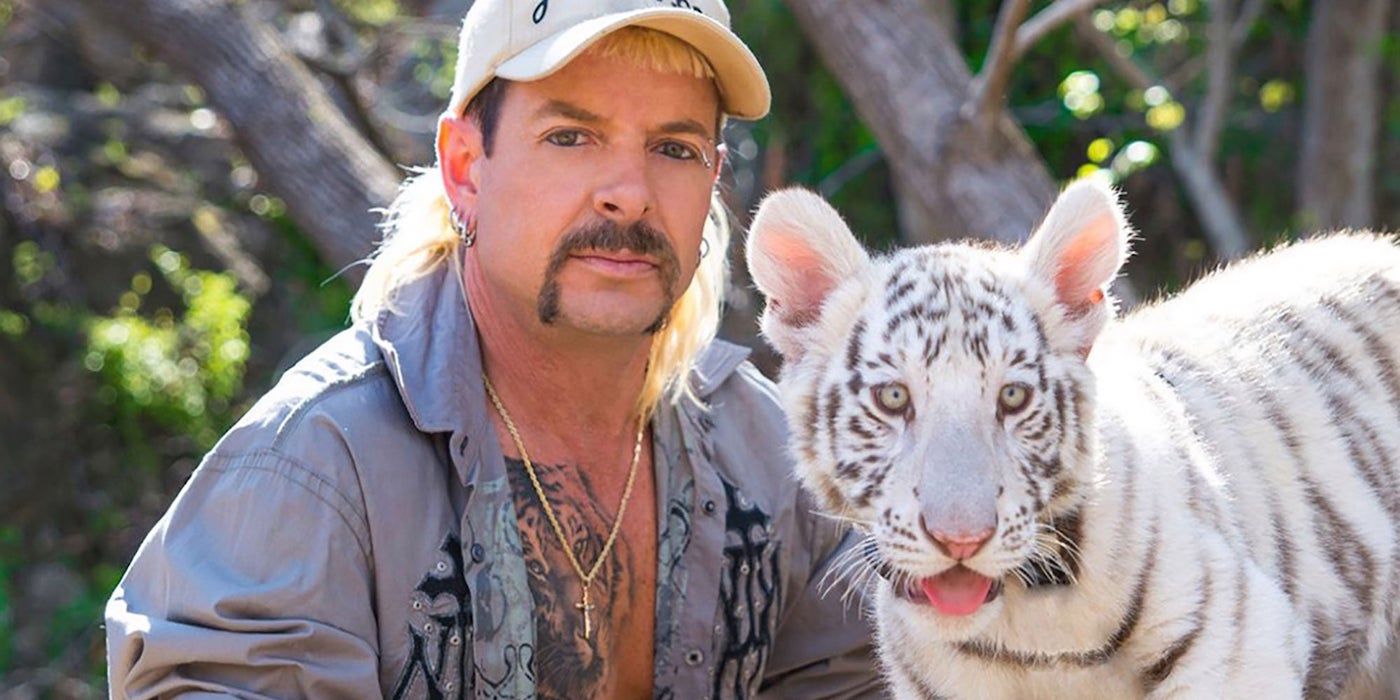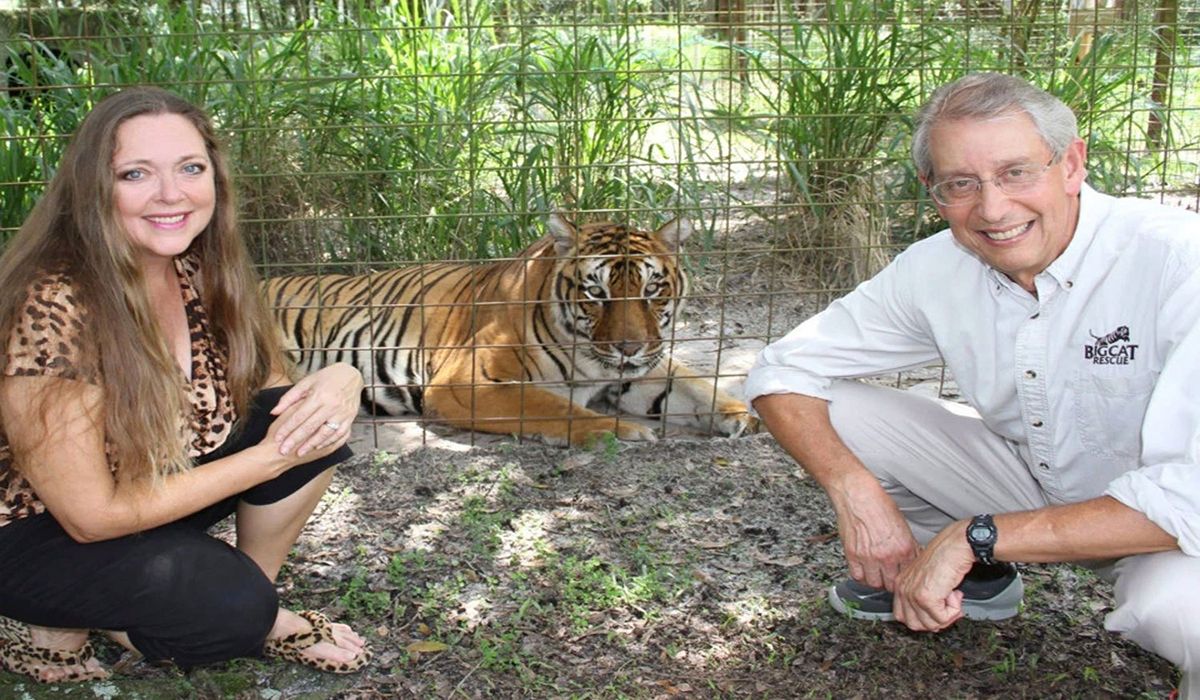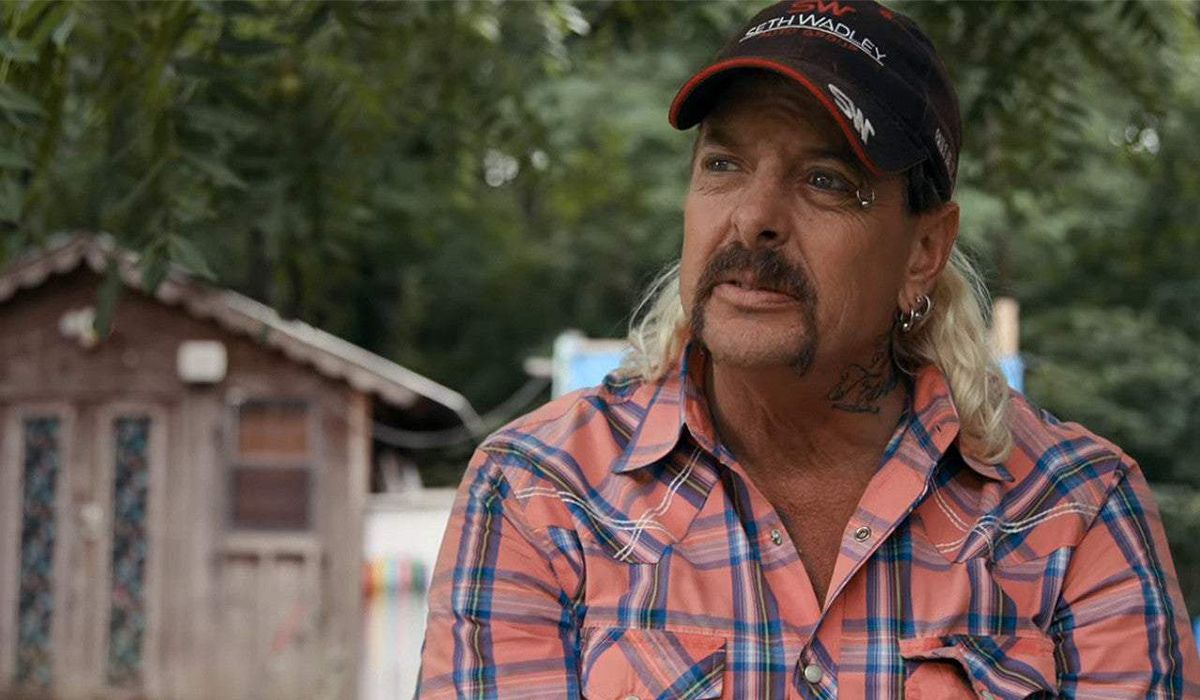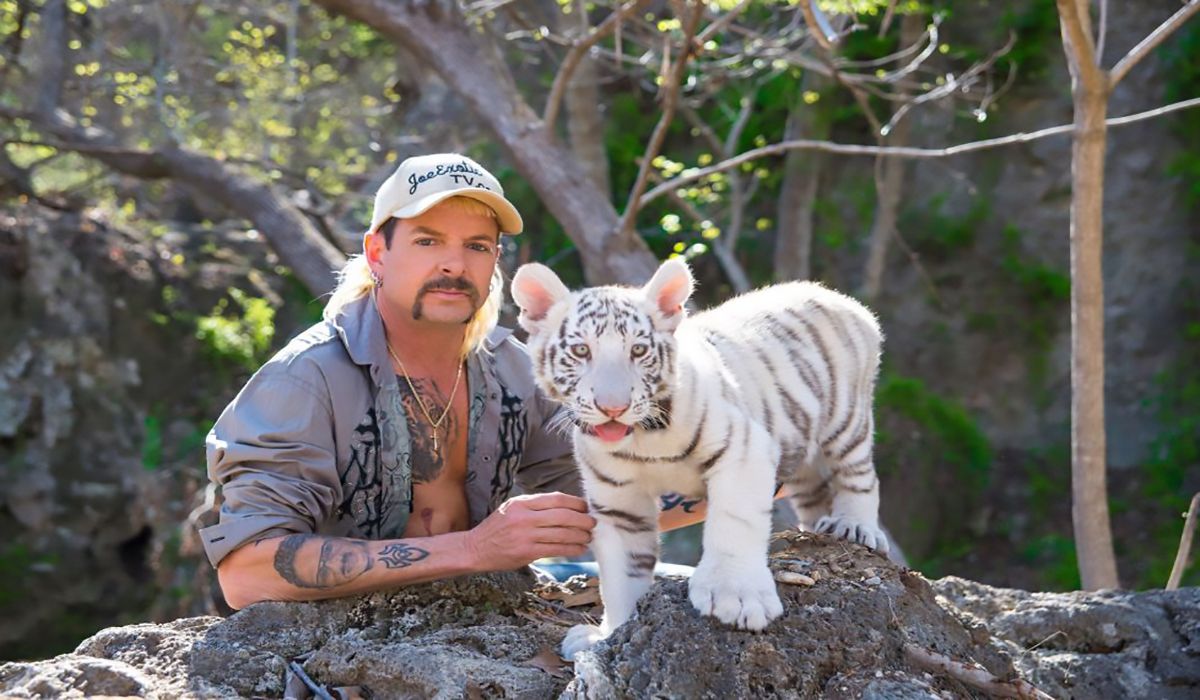Like all narratives, even documentaries sensationalize the incoherent and boring parts of life to create a cohesive, exciting story. Tiger King: Murder, Mayhem and Madness, in its pursuit of a seemingly even-handed approach to the cutthroat rivalry between Joe "Exotic" Maldonado-Passage and Big Cat Rescue's Carole Baskin, does a disservice to the horrors of big cat and exotic animal captivity, breeding and sale.
There is no federal law that regulates exotic animal ownership, leaving regulations up to individual states. Many states do not require a permit to own a tiger or other exotic animals, and the USDA, except in enforcing the Animal Welfare Act, does not regulate big cat ownership. There's also no official count of how many tigers live in captivity in the United States, but estimates range between 5,000 and 10,000; however, there's no way of knowing how accurate those numbers are.
In the series, a false equivalency is made between the Greater Wynnewood (GW) Exotic Animal Park, formerly owned by Exotic, and the Big Cat Rescue (BCR), run by Baskin. There are scenes of big cats housed in large-ish enclosures, streams of tourists engaging with big cats and a fair amount of human-animal interactions. While it's nominally true that there are some similarities in the parks, it hides the fact that the GW Park is situated on 16 acres of land and houses upwards of 700 animals while Big Cat Rescue is on 67 acres and features 50+ cats who were either abandoned or from private collectors.
These are cats that can grow up 680 lbs and reach lengths of 13 ft, and in the wild, depending on prey density and human encroachment, tigers require large territories. Neither GW Park or BCR offer their tigers those kinds of ranges, but it's not just the egregious limited land these two parks offer that the show casually omits; however, the show tries to equate the two parks as one in the same.
GW Park is a roadside zoo with cub-petting, breeding and sales. It is not a sanctuary interested in the conservation of tigers, despite significant protests to the contrary. Most privately owned tigers are not bred from a pair of the same subspecies of tiger, but they are cross-bred with other subspecies and sometime other big cats, leading to genetic abnormalities. Tigers, like all creatures, evolved to best survive within their natural habitat, but these privately bred tigers would not be able to return to their natural habitats because of the harsh environments they're bred in and because they wouldn't have the genetic makeup to do so.
However, BCR is an accredited sanctuary. Sanctuaries, to remain accredited and in good standing with the Global Federation of Animal Sanctuaries, must adhere to strict housing, health, veterinary practices and nutritional standards, and zoo exhibitors must obtain a license to breed and sell big cats and meet minimum standards set out in the Animal Welfare Act. Those standards are not nearly as stringent as those set forth by the GFAS.
Not only are many of these privately owned creatures being held in cramped, feces ridden enclosures, but they are also being inhumanely bred and subject to exhibition and human exposure. Tigers in general and cubs in particular are not adapted for human contact.
Cubs are often "speed bred," meaning they are taken away from their mothers early so that the mom will go into heat again to produce more cubs. For the cubs, bright lights, being passed amongst humans and being kept from their mothers is stressful and immoral. Once they have ceased to be viable, they go on to be bred, exhibited and often times euthanized, which, in the case of Exotic's current conviction, is a kind way of saying slaughtered.
Remarkably, despite Exotic targeting young men, paying intolerably low wages, subjecting workers to dangerous environments with little to no training and his murder-for-hire plot against Baskin, more could have been done to show his true character, revealing his racism and the cruelties he perpetrated on tigers.
For instance, Exotic was fined $25,000 by the USDA for, amongst other things, " [f]ailing to handle animals...in a manner that does not cause physical harm, behavioral stress and unnecessary discomfort; to establish and maintain programs of adequate veterinary care that include...appropriate methods to...treat disease and injuries; [or] provide adequate natural or artificial shelter for animals kept outdoors."
There's a reason Exotic is in jail for more than just two counts of murder-for-hire, but he's not the disease; he's a symptom. There's a whole ecosystem surrounding exotic animal sales, breeding and torture propped up by lax oversight, regulation and negligent care for this deplorable practice.
The series could've but didn't highlight the gross inequities rampant in exotic animal trade. Netflix and the series creators could rectify some of their complicity in the glorification of big cat ownership by showing the horrors inflicted on tigers in captivity rather than the sensationalizing someone who engaged in the abuse of the tigers in his care as well as the people around him.




